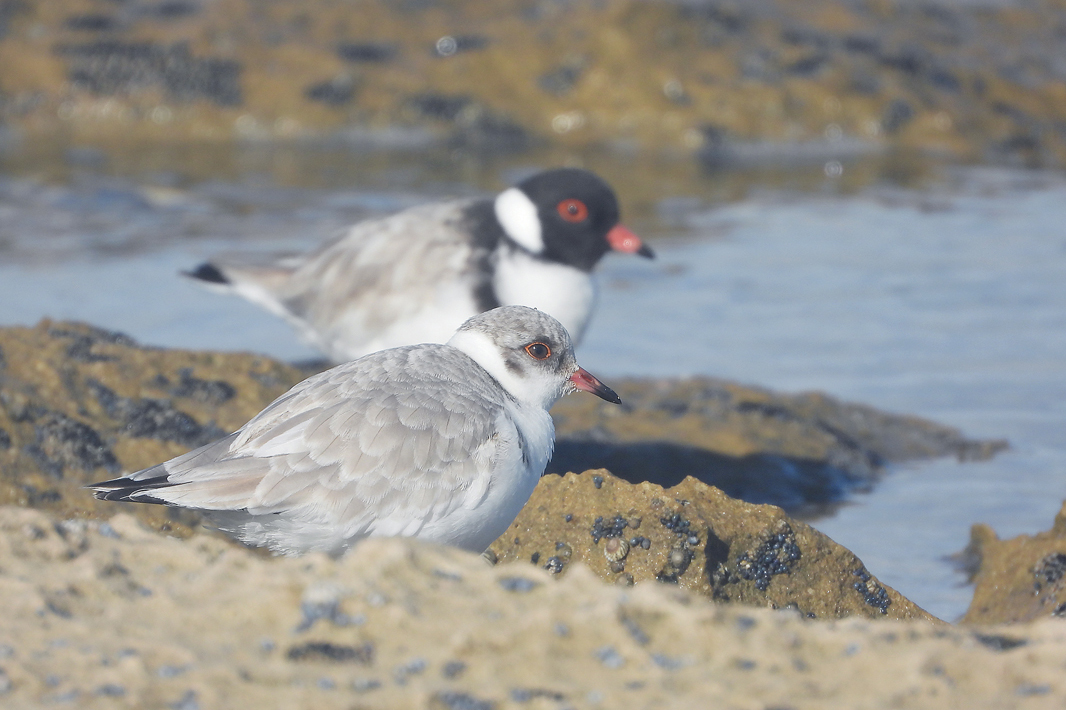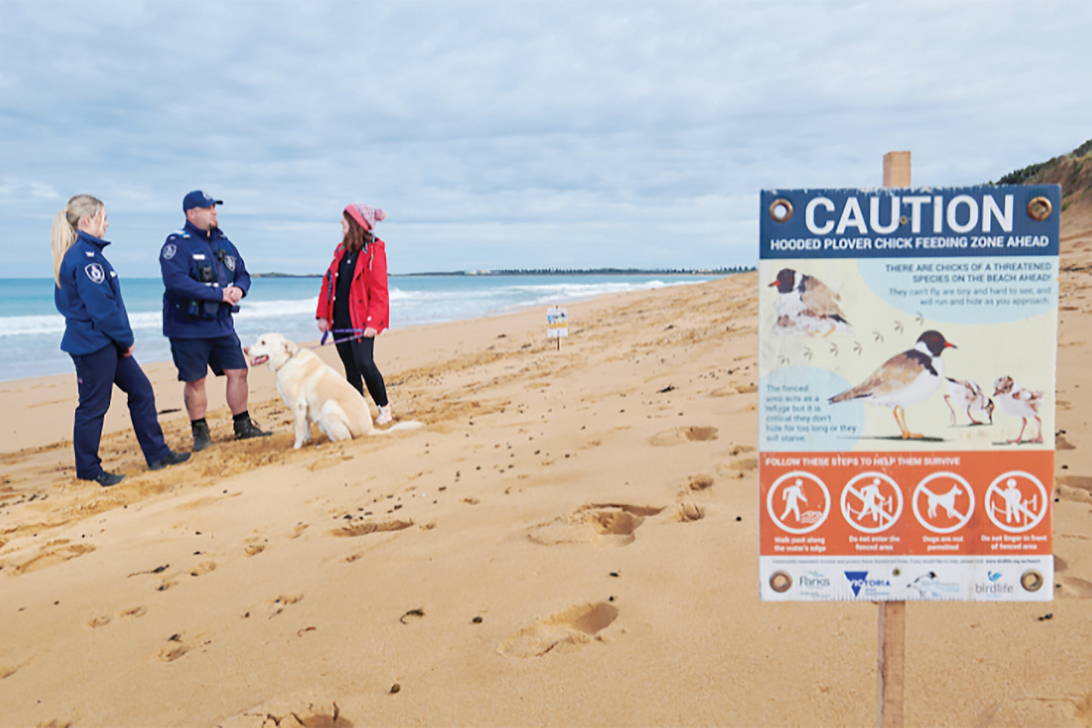VISITORS are being urged to look out for hooded plovers nesting along Mornington Peninsula shorelines and help the birds by giving them plenty of space and keeping dogs away from breeding areas.
Now in its third season, the Conservation Regulator’s Operation Save our Hoodies (SoHo), run in partnership with Parks Victoria and Birdlife Australia, is helping protect the threatened beach-nesting birds during their breeding season.
Hooded plovers lay eggs in shallow sand scrapes and raise their chicks on beaches between August and March.
They face threats from people trampling nests or scaring them into abandoning their eggs, and from dogs not under control that chase, catch, and kill vulnerable chicks.
Birdlife Australia data shows that just 25 percent of 764 eggs recorded along Victoria’s coastline in the 2022-23 season hatched because of human impacts, predators, and harsh environmental factors. Only 43 chicks survived to become juveniles.
Conservation Regulator and Parks Victoria officers are patrolling peninsula beaches, including those between Gunnamatta and Portsea to protect the birds while they are breeding and to give the species their best chance over summer as they face risks from increased beach use.
The patrols will be made on weekends and weekdays.
Last breeding season 83 people were fined for such offences as disturbing birds and dog owners not complying with rules near hooded plover habitat.
“Our coastal patrols over the next few months will focus on protecting this important threatened species and educating beachgoers about how their small actions have big impacts on the survival and growth of native hooded plover populations,” Conservation Regulator forest and wildlife officer Lucille Watterson said.

Birdlife Australia volunteers are monitoring hooded plovers and helping the protection efforts by raising public awareness of the species, installing signs and fencing-off nesting sites.
“Our amazing ocean beaches are habitat to unique wildlife, and the survival of species like the hooded plover relies on every beach user to share the beach with the birds and give them a chance at successfully raising a family. Most people are happy to give Hoodies some space once they are aware, but the few people who ignore the rules can jeopardise this,” BirdLife Australia’s coastal and wetland birds program leader Dr Grainne Maguire said.
Members of the public are being encouraged to keep their distance and report any sightings of hooded plovers nesting in unmarked areas to BirdLife Australia on 9347 0757 or at beachnestingbirds@birdlife.org.au.
Hooded plovers are protected under the Wildlife Act 1975, and it is illegal to disturb, injure or destroy them; damage their habitat; or interfere with warning signage, with maximum penalties ranging between $3846 and $46,154. Dog owners can be fined up to $4807 if their dog attacks wildlife.
The Conservation Regulator investigates reports of habitat destruction and dogs harassing hooded plovers. Reports can be made to Crime Stoppers Victoria on 1800 333 000.




